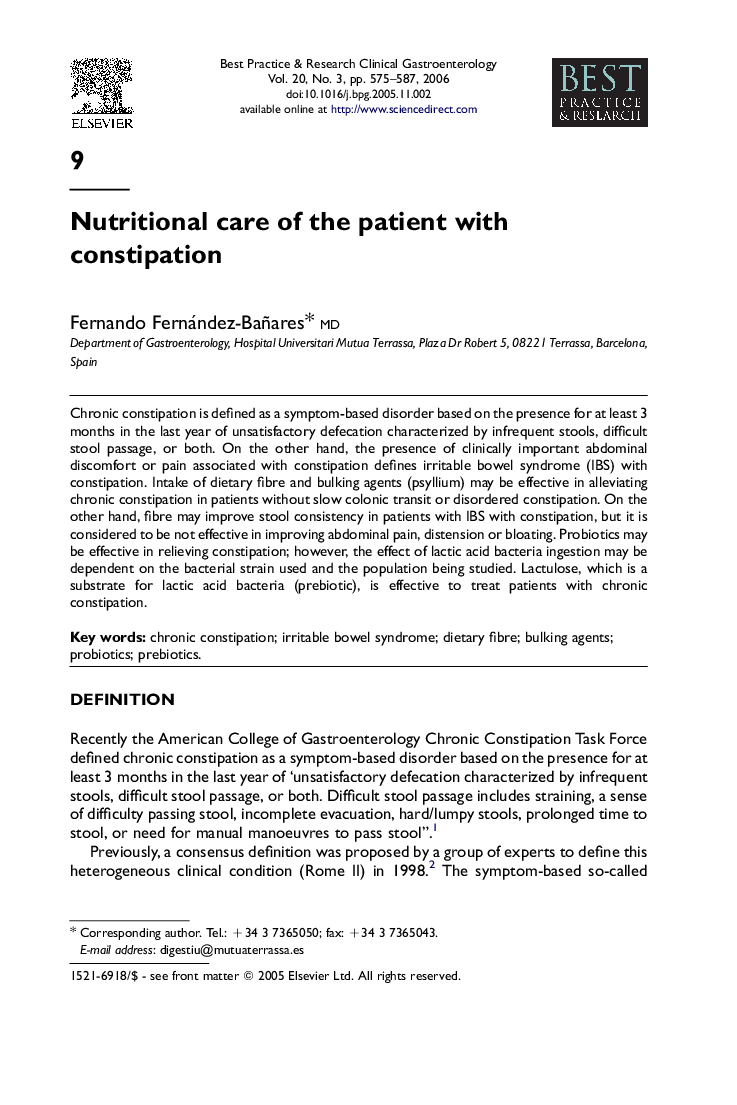| Article ID | Journal | Published Year | Pages | File Type |
|---|---|---|---|---|
| 3254861 | Best Practice & Research Clinical Gastroenterology | 2006 | 13 Pages |
Chronic constipation is defined as a symptom-based disorder based on the presence for at least 3 months in the last year of unsatisfactory defecation characterized by infrequent stools, difficult stool passage, or both. On the other hand, the presence of clinically important abdominal discomfort or pain associated with constipation defines irritable bowel syndrome (IBS) with constipation. Intake of dietary fibre and bulking agents (psyllium) may be effective in alleviating chronic constipation in patients without slow colonic transit or disordered constipation. On the other hand, fibre may improve stool consistency in patients with IBS with constipation, but it is considered to be not effective in improving abdominal pain, distension or bloating. Probiotics may be effective in relieving constipation; however, the effect of lactic acid bacteria ingestion may be dependent on the bacterial strain used and the population being studied. Lactulose, which is a substrate for lactic acid bacteria (prebiotic), is effective to treat patients with chronic constipation.
